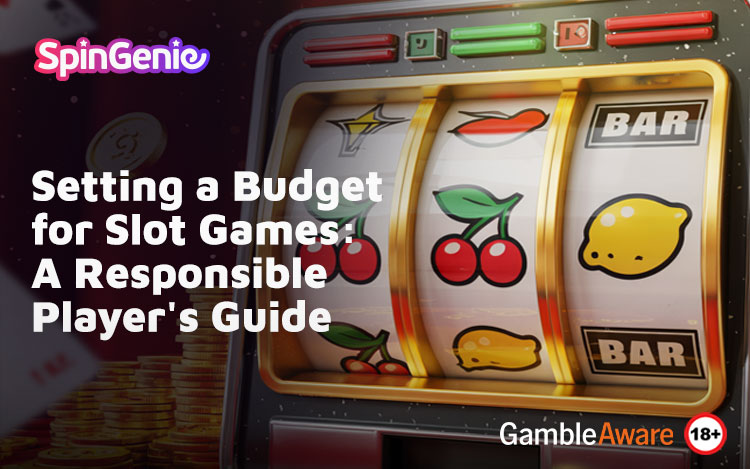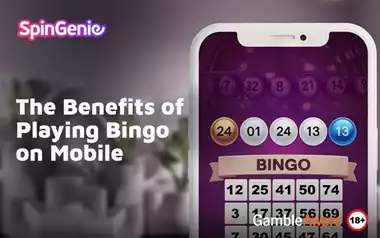Slot games offer thrilling entertainment, but without proper financial boundaries, what begins as fun can quickly become problematic. Establishing a clear budget before you play online slots represents the single most effective strategy for maintaining control over your gambling activities. This practice not only protects your bank account but also enhances your overall gaming experience by removing financial stress from the equation.
The psychology behind slot machines—with their bright lights, engaging sounds, and near-miss effects—can make it dangerously easy to lose track of spending. A predetermined budget acts as a safeguard against these potentially manipulative design elements. By viewing your slot play as paid entertainment rather than an income opportunity, you adopt the healthiest possible mindset. Consider your slot budget similar to tickets for a concert or sporting event—a set amount you're comfortable spending for enjoyment with no expectation of financial return.
Step 1: Assessing Your Financial Situation
Before determining how much to allocate for slot play, conduct an honest evaluation of your disposable income—the money left after covering essential expenses like rent, bills, groceries, and savings. Financial experts recommend that entertainment expenditures (including gambling) should never exceed 5-10% of your disposable income. For someone with £500 monthly disposable income, this translates to £25-£50 for all leisure activities.
When creating your budget, consider these key factors:
- Essential expenses: Never use money allocated for bills or necessities
- Savings goals: Prioritize financial security over gambling
- Other entertainment: Balance slot play with other leisure activities
- Frequency of play: Weekly players need smaller session budgets than monthly visitors
This assessment should be revisited whenever your financial situation changes significantly—after a pay raise, job loss, or major expense. Responsible gambling begins with this fundamental awareness of what you can truly afford to spend without negative consequences.
Step 2: Determining Session Budgets
Once you've established your overall gambling budget for a specific period (weekly or monthly), divide this amount into individual session budgets. This prevents the common pitfall of spending your entire monthly allowance in one impulsive session. For example, a £50 monthly budget could become four £12.50 weekly sessions or two £25 biweekly sessions.
The size of your session budget should reflect:
- Game volatility: High volatility slots require larger bankrolls
- Bet sizes: Budget should cover at least 100 spins at your preferred bet level
- Duration: Allocate more for longer planned sessions
A useful formula for slot session budgeting:
(Average Bet) x (100) = Minimum Session Bankroll
This ensures you can weather normal variance without exhausting funds too quickly. For £0.50 spins, aim for at least £50 per session.
Step 3: Choosing Appropriate Bet Sizes
Your bet size should always correlate with your total session budget. As a general rule, individual spins shouldn't exceed 1-2% of your total session bankroll. This conservative approach allows you to endure natural variance without risking quick depletion of funds.
Consider these bet size strategies:
- Low volatility slots: 1-2% of bankroll per spin
- Medium volatility: 0.5-1% of bankroll per spin
- High volatility: 0.25-0.5% of bankroll per spin
For a £100 session budget playing medium volatility slots, this translates to £0.50-£1 bets. Remember that while smaller bets extend playtime, they also reduce potential payout sizes. Finding your personal balance between entertainment duration and win potential is key to enjoyable slot play.
Step 4: Implementing Loss Limits
A loss limit represents the maximum amount you're willing to lose in a single session before walking away. This crucial boundary prevents chasing losses—one of the most dangerous behaviors in gambling. Experts recommend setting loss limits at 50-70% of your session budget, ensuring you always retain some funds for future play.
Effective loss limit strategies include:
- Physical reminders: Write your limit on paper before playing
- Digital tools: Use casino deposit/loss limit features
- Accountability: Share limits with a friend
- Visual cues: Separate your bankroll into "play" and "reserve" piles
When you reach your predetermined loss limit, stop immediately—regardless of how close you feel to a potential win. This discipline separates recreational players from those at risk of developing problem gambling signs.
Step 5: Tracking Wins and Losses
Maintaining accurate records of your slot play provides valuable insights into your spending patterns and helps identify potential issues before they escalate. A simple tracking system should include:
- Date and duration of each session
- Starting and ending bankroll amounts
- Games played and bet sizes
- Notable wins or bonus triggers
- Emotional state before/after playing
This data serves multiple purposes:
- Identifies if you're consistently exceeding budgets
- Reveals which games provide the best entertainment value
- Helps recognize emotional triggers for overspending
- Provides concrete evidence of wins/losses (counteracting memory bias)
Digital tools like spreadsheets or gambling-specific apps can simplify this process, but even a notebook works effectively. Review your records monthly to assess whether your current budget remains appropriate.
Step 6: Utilizing Casino Tools and Features
Reputable online casinos like Spin Genie UK offer numerous tools to help players maintain control:
Deposit Limits
Set daily, weekly, or monthly maximum deposit amounts that cannot be exceeded without a cooling-off period.
Loss Limits
Automatically restrict play after reaching a predetermined loss amount.
Session Time Alerts
Receive notifications when you've played for a set duration.
Reality Checks
Periodic pop-ups displaying time played and current balance status.
Self-Exclusion
Option to block access to your account for a chosen period.
These tools work most effectively when implemented before beginning play, not in the heat of a gaming session. Combine them with your personal budgeting methods for comprehensive protection.
Step 7: Managing Winnings Responsibly
While budgeting typically focuses on loss prevention, how you handle winnings is equally important. Consider implementing these practices:
The 50% Rule
When you achieve a significant win (e.g., doubling your session bankroll), withdraw at least half while continuing with the remainder.
Win Limits
Set targets for when to stop playing after winning (e.g., stop after reaching 150% of starting bankroll).
Cooling-Off Periods
Take a mandatory break after big wins to avoid giving back profits during emotional highs.
Reinvestment Caps
Limit how much of your winnings you'll reinvest in continued play.
These strategies help lock in profits and prevent the common cycle of winning big only to lose it all chasing greater rewards.
Step 8: Recognizing When to Stop
Budgeting isn't just about money—it's also about time and emotional state. Warning signs that it's time to stop include:
- Playing faster to "get even"
- Increasing bet sizes to recover losses
- Neglecting responsibilities to keep playing
- Feeling irritable when not gambling
- Lying about gambling activities
These behaviors may indicate you're moving beyond recreational play toward problem gambling signs. Regular self-check-ins help maintain awareness of your relationship with slot games.
Alternative Budgeting Methods
For players seeking structured approaches, these systems offer additional frameworks:
The Percentage Method
Allocate a fixed percentage (e.g., 5%) of each paycheck to gambling entertainment.
The Entertainment Equivalence
Match your gambling budget to what you'd spend on similar leisure activities (dining out, movies, etc.).
The Savings Match
Only gamble amounts equal to what you've saved that month.
The Time-Based Budget
Determine an hourly entertainment rate (£5/hour) and multiply by planned session length.
Experiment to find which method best aligns with your financial situation and personal discipline.
Budgeting for Different Player Types
Your ideal budgeting approach should reflect your playing style:
Casual Players (1-2 sessions/month)
Can allocate larger session budgets since play is infrequent.
Regular Enthusiasts (weekly play)
Need stricter weekly limits to prevent monthly overspending.
High Rollers
Require sophisticated bankroll management systems to handle larger sums responsibly.
Tournament Players
Should separate tournament entry fees from regular play budgets.
Responsible Gambling Resources
If you find maintaining a budget challenging, these responsible gambling tips may help:
- GamBan (software blocking access to gambling sites)
- Financial counseling services
- Support groups like Gamblers Anonymous
- Professional therapy for gambling addiction
- National gambling helplines
Remember that setting a budget represents just one component of responsible play. Combine it with time limits, regular breaks, and honest self-assessment for truly balanced slot enjoyment. Stay in control by setting limits before you play. Enjoy Spin Genie UK’s slots responsibly.










